By Noel Pai-Young and Mario Lotmore
During 2020, the state saw its fair share of legal action. From the controversial ruling of the Washington Supreme Court to strike down I-976 to Washington state’s largest independent state environmental settlement against a single entity – Monsanto.
To continue our Year in Review series, the Lynnwood Times will highlight the top 2020 legal cases of the Office of the Attorney General.
NAVY required to clean Puget Sound and change future practices to protect waters
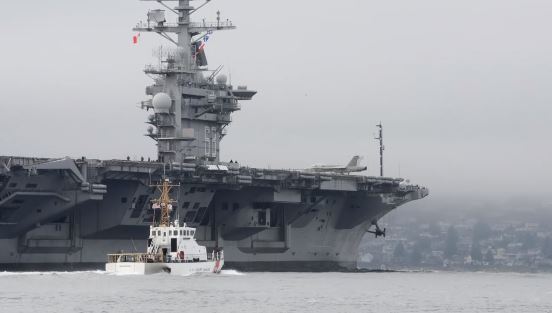
In January, Attorney General Bob Ferguson announced a court order to the U.S. Navy to stop releasing toxic materials into Sinclair Inlet in the Puget Sound and to do a multi-million dollar clean up to reverse the damage.
Approximately 73 dump-truck loads of solid materials that are harmful to marine life were allegedly discarded into the inlet — even after the Navy sought out advice from the National Marine Fisheries Service and were told to get debris out of the water as soon as possible.
According to the lawsuit, the
negligence by the Navy violates the federal Clean Water Act and the state Water
Pollution Control Act.
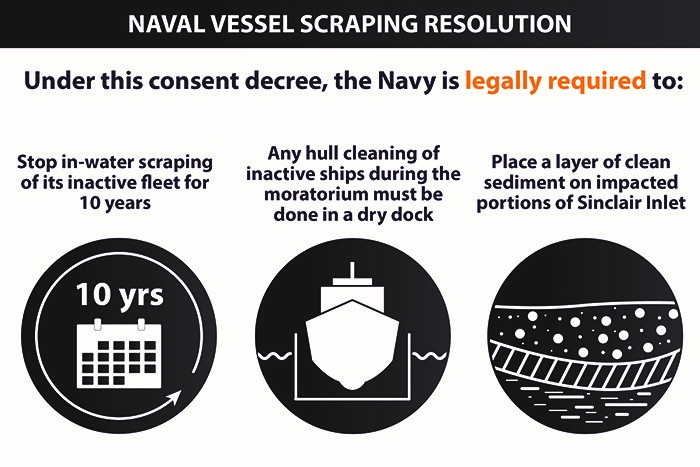
The Navy is now legally required to stop in-water scraping for 10 years. During the 10-year moratorium, the Navy must clean inactive ships that require scraping in a dry dock, out of the water, to prevent releasing materials directly into Puget Sound. In addition to the moratorium, the Navy must prevent additional environmental damage caused by the scraping of the ex-Independence by placing a layer of clean sediment on the impacted portions of Sinclair Inlet. The Navy must also reimburse the fees incurred by the Attorney General’s Office and other plaintiffs.
For the full press release click here.
U.S. District Court upheld voter approved Initiative 1639
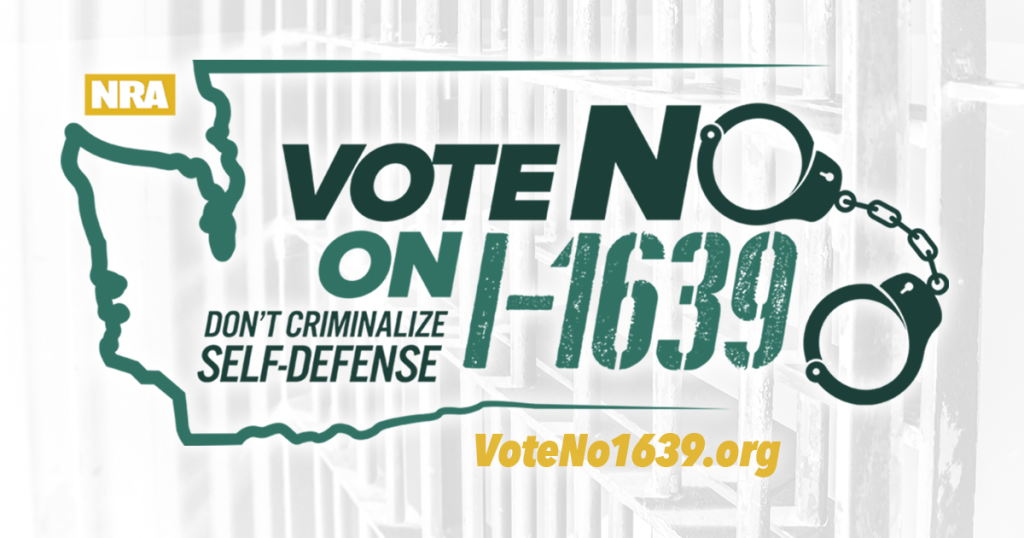
Federal U.S. District Court judge for the Western District of Washington, Judge Ronald Leighton, ruled on August 31 that Initiative 1639 is constitutional and will remain law in Washington state.
The voter-approved initiative made several changes to Washington laws on semiautomatic rifle purchases, including strengthening background checks and requiring waiting periods for purchases of semiautomatic assault rifles.
In November 2018, I-1639 passed with nearly 60 percent of the popular vote. The initiative raised the minimum age for purchase of handguns and semi-automatic rifles 18 to 21 years of age and required enhanced background checks and waiting periods.
For the full press release click here.
AG Bob Ferguson files a lawsuit against JUUL

Attorney General Bob Ferguson filed a consumer protection lawsuit in September against vaping company JUUL. The lawsuit claims tens of thousands of violations of the Consumer Protection Act, which prohibits unfair and deceptive business practices. For example, Ferguson asserts the following constitute violations:
- Every product JUUL sold without disclosing nicotine content on the package;
- Every “Vaporized” ad targeting youth;
- Every product JUUL sold unlawfully without the appropriate license.
The lawsuit seeks penalties of $2,000 per violation and deprive JUUL of the proceeds from what the lawsuit calls, “unlawful profits,” as well as for JUUL to cease all unlawful marketing tactics.
For the full press release click here.
Washington State Supreme Court striking down Initiative 976
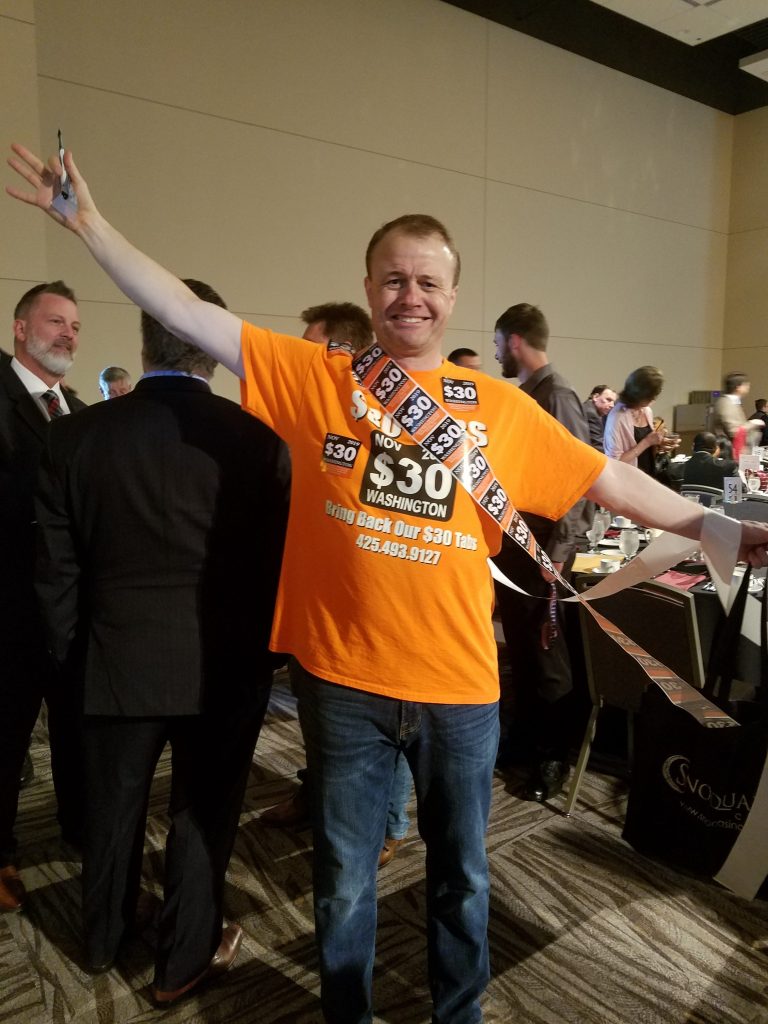
Washington State Supreme Court in October overturned Tim Eyman’s voter approved $30 Tabs Initiative that passed in 2019 with nearly 53% of the popular vote across the state.
Attorney General Bob Ferguson stated, “He will again blame my office for language in the ballot title that he specifically requested to be included in the title, and that was pulled word-for-word from his initiative. He [Eyman] should look in the mirror and apologize to voters for once again sending them an initiative that failed to survive a legal challenge and deliver on its promises.”
For the full press release click here.
AG Ferguson and DOJ file lawsuits against Facebook for unlawful practices

Ferguson and 48 other state attorney generals filed an antitrust lawsuit against Facebook in December, alleging the company formed an illegal monopoly in the personal social networking market. The case was filed in the U.S. District Court for the District of Columbia.
Ferguson points out that Facebook ruthlessly does what it needs to do to keep its monopolistic power, “from unlawfully swallowing up its potential competitors to walking back its privacy protection promises.”
Ferguson has taken legal action against Facebook twice before for violations of Washington’s laws on political advertising. In his 2018 case, Facebook settled in the amount of $238,000 in restitution to the State of Washington.
The Department of Justice filed a lawsuit against Facebook in December for showing hiring preference to temporary visa holders and therefore discriminating against U.S. workers during — at least — a nearly two-year investigation period.
If companies cannot find a qualified worker in the U.S. and are able to demonstrate their effort to do so, the permanent labor certification process (PERM) allows them to convert a visa holder to a permanent resident.
Facebook allegedly made applying to particular positions more difficult for U.S. workers and streamlined the process for temporary visa holders. In this, Facebook reportedly defied the Immigration and Nationality Act which protects residents from discrimination based on citizenship status.
For the full press release click here.
Monsanto to pay $95 million for widespread PCB contamination of the state’s natural resources
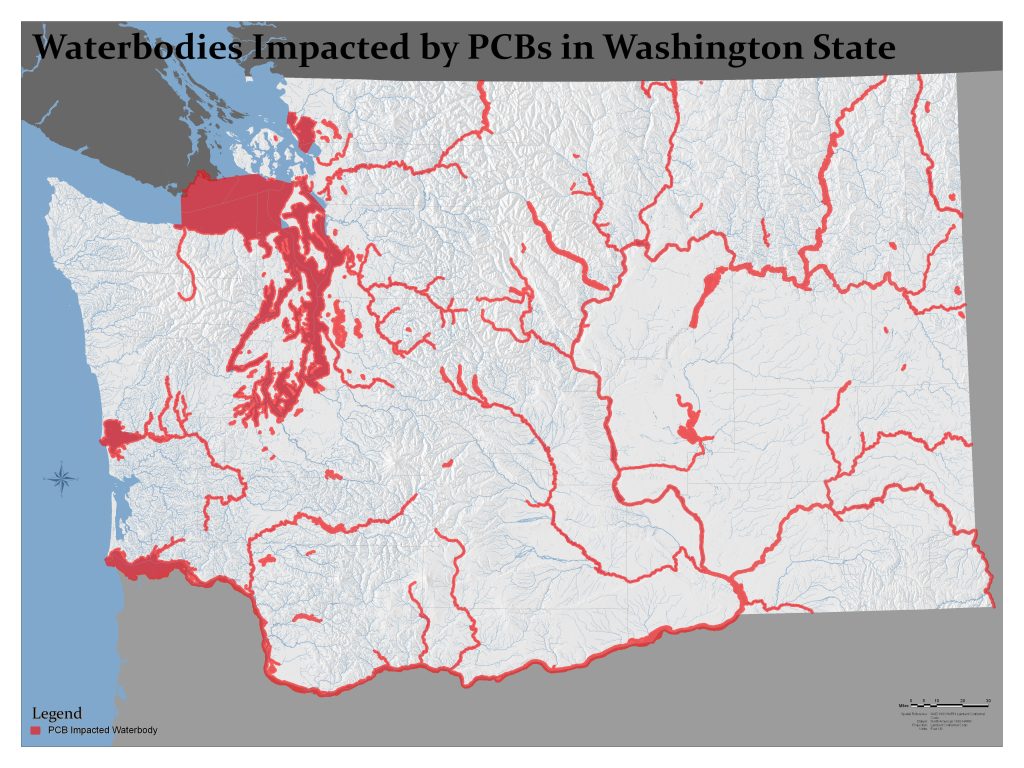
In 2016 Washington was the first state to file a lawsuit against Monsanto over its PCBs, asserting that the company produced PCBs for decades while hiding what they knew about the toxic chemicals’ harm to human health and the environment. Monsanto was the only U.S. company to produce PCBs from 1935 until it was banned in 1977.
In June of 2020, after three years of intense litigation Monsanto settled to pay damages PCBs have inflicted on the state’s natural resources, including the economic impact to the state and its residents.
Under the terms of the settlement, Monsanto will pay $95 million within 60 days of the seattlement to resolve its manufacturing, marketing, and distribution liability related to PCBs in Washington state. This resolution does not impact any pending or potential liability related to the direct discharge of PCBs in the state, including PCB contamination at Superfund sites along the Lower Duwamish River. Below is a breakdown of settlement recipients:
- At least $60 million will go to the state General Fund
- Outside firms received approximately $21.25 million of the settlement
- Reinvest $10 million to support the Attorney General office’s environmental work
- About $2 million will cover the Office of the Attorney General’s legal costs
For the full press release click here.
Author: Mario Lotmore












